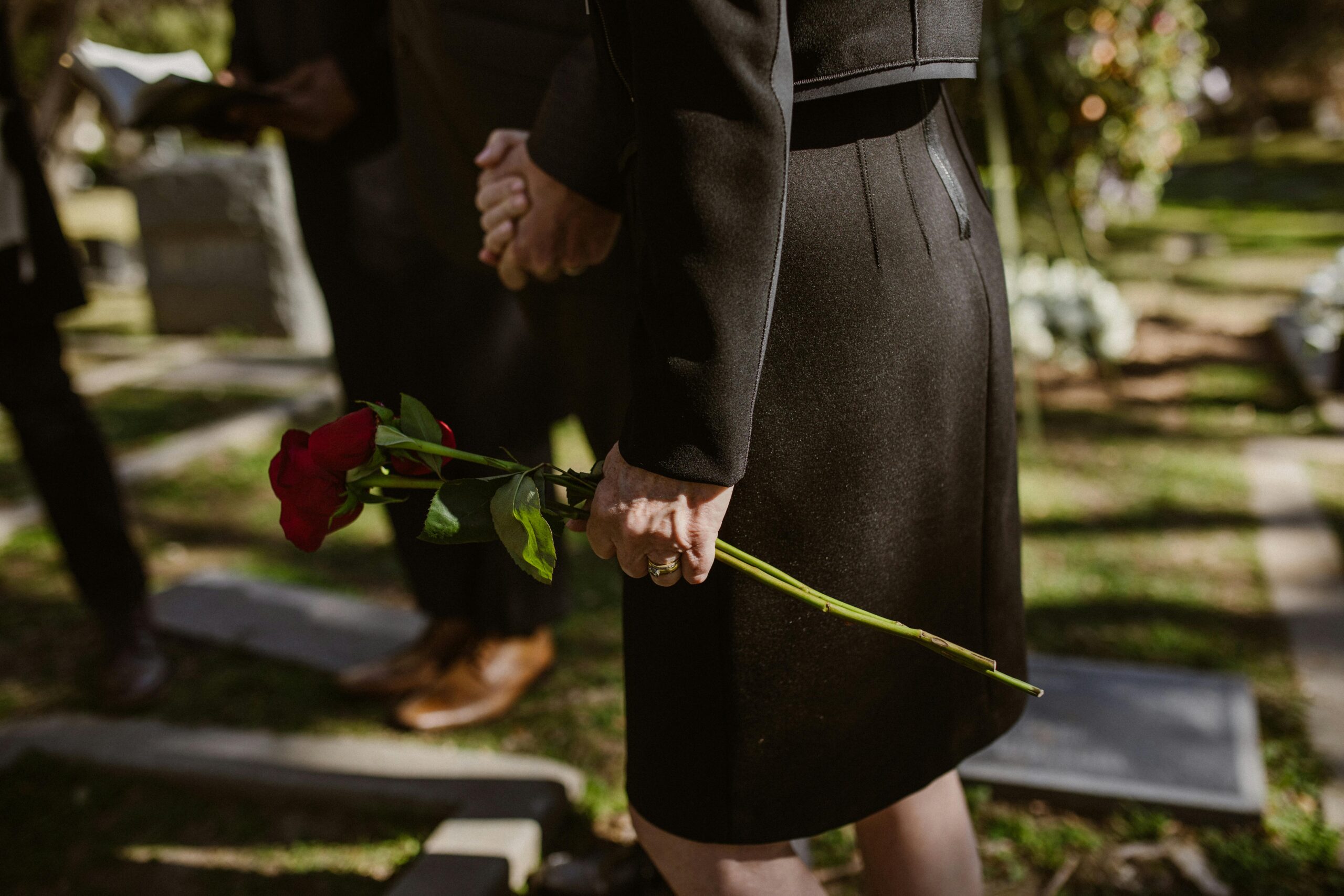
Funerals can be an important part of the grieving process, helping the bereaved come to terms with their loss whilst offering the chance to say goodbye. When it comes to children at funerals, many people will worry about whether it’s suitable for them to attend and the impact it may have on them.
The main thing to remember is that there is no right or wrong answer, and what works for one family may not work for another. In this article we’ll explore some of the things to consider when making your decision..
What is the right age for a child to attend a funeral?
Every child will develop and grow at different rates, which means there is no ‘right age’ for a child to attend a funeral. There are many factors to consider, such as the relationship your child had to the deceased, how well you think they’ll cope with the emotion of the day and whether they can sit quietly during the service.
To aid your decision, it can be helpful to know what understanding of death a child may have at different age groups…
Babies and toddlers
Although babies and toddlers are too young to understand what death is, they may be aware that someone is missing and will experience feelings of loss and separation. They will also pick up on the grief and emotions of their caregivers and may experience grief through the emotions of others.
Children up to 5 years
Younger children are unlikely to fully grasp the concept of death and may not understand that death is irreversible. This can result in young children showing less of a reaction to a person’s death than you might expect. They may not show many outward signs of grief but may seem confused or have lots of questions.
Children between 5 – 10 years
Children in this age group will develop a greater understanding of death. They will understand that when a person dies they aren’t coming back, and that eventually everyone dies. They may show a range of different emotional and behavioural signs they are grieving or may seem unaffected by the loss. Their grief may change from one day to the next, and they will often have lots of questions.
Teenagers
Teenagers will have a full understanding of death but may respond to death in different ways. Some may want to talk things through, while others may close off or hide away. Some teenagers may appear unaffected by a loss. You may also find that the way a teenager grieves changes from one day to the next, which is a very normal response to grief.
How to decide if a child should attend a funeral
Every child is different, but there are some important things to consider when deciding whether a child should attend a funeral. This could include how close they were to the deceased, how sensitive or anxious they are, how long the ceremony will be and how easily distracted they are. It’s also important to consider whether the child wants to attend the funeral.
For children old enough to understand, they should generally be given the choice of whether to attend, particularly if they were close to the person who has died. Funerals provide an important way to come to terms with a death, so respecting your child’s decision may ultimately support them in their grief.
How to prepare your child for attending a funeral
You may worry about how a child will cope with the emotion of the day, particularly seeing the adults in their life crying or visibly upset. Trying to prepare them as much as possible for what to expect can help them understand what they may experience. Remember, as much as a funeral is a sad occasion, many funerals also include moments of remembrance as well as an opportunity to celebrate the person who has died.
Talk to them in simple, open and honest language that avoids sending them a confused message. Tell them about funerals and why we hold them, explain what happens at a funeral and talk to them about some of the emotions they may see or feel on the day. Reassure them that crying is normal and can be an important part of saying goodbye, but that they may feel lots of different emotions on the day, including happiness and laughter.
Our team are experienced in all areas of funeral arranging, and can support families in their time of need. If you are recently bereaved and would like to find out more about how Dillamore can help, call us on 01525 372210, email us using our contact form or schedule an appointment using our booking tool.



